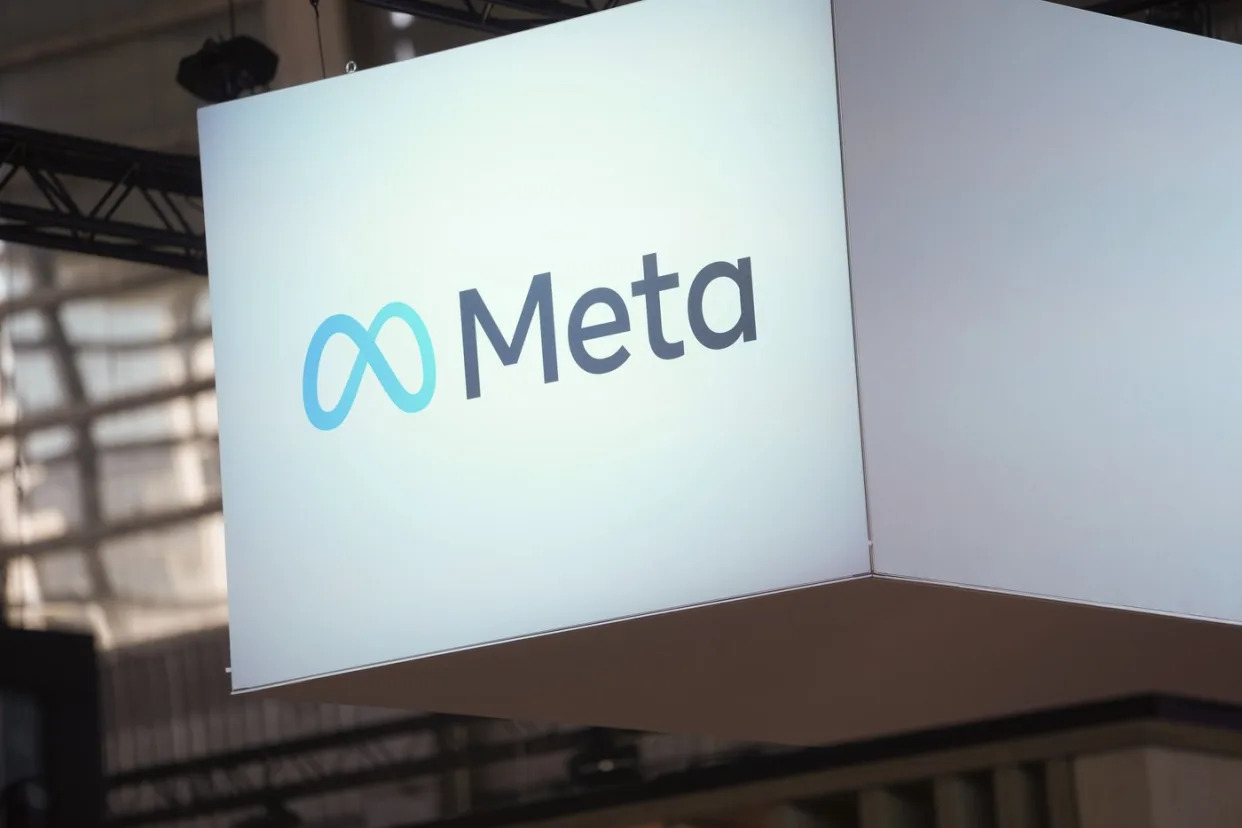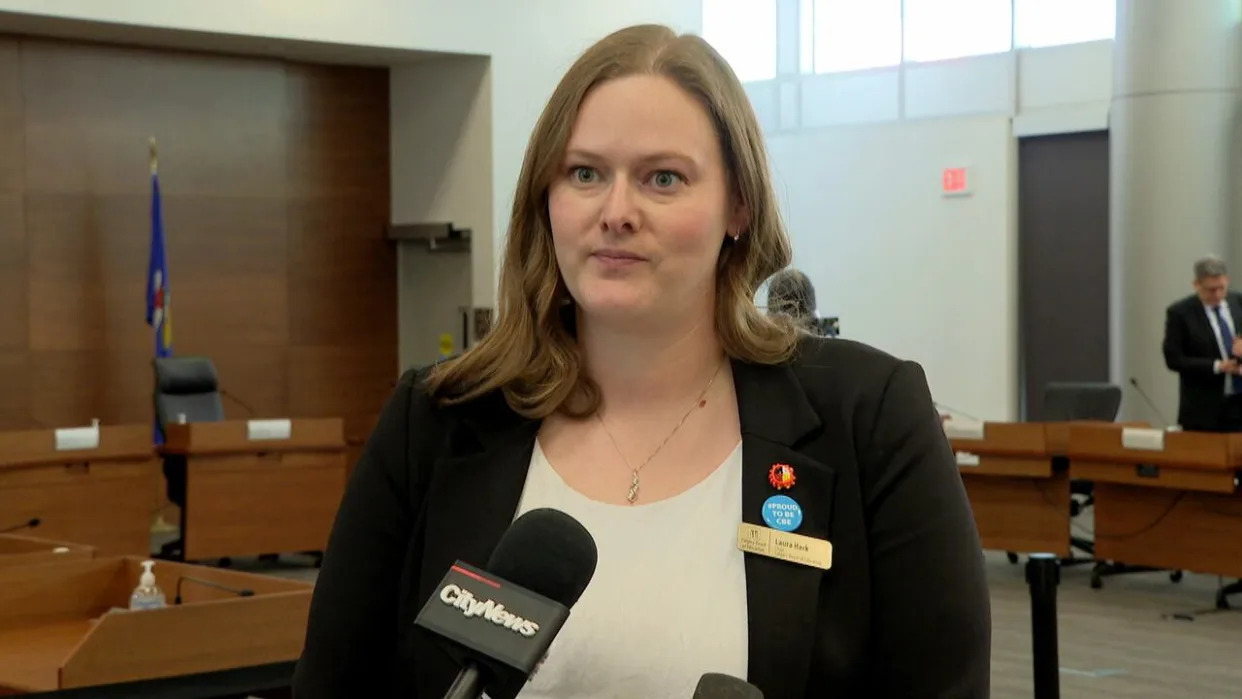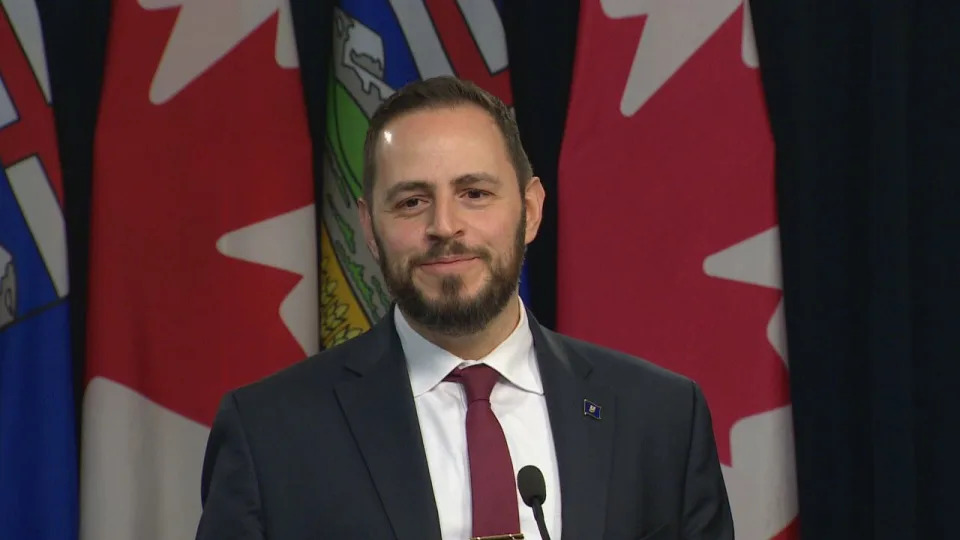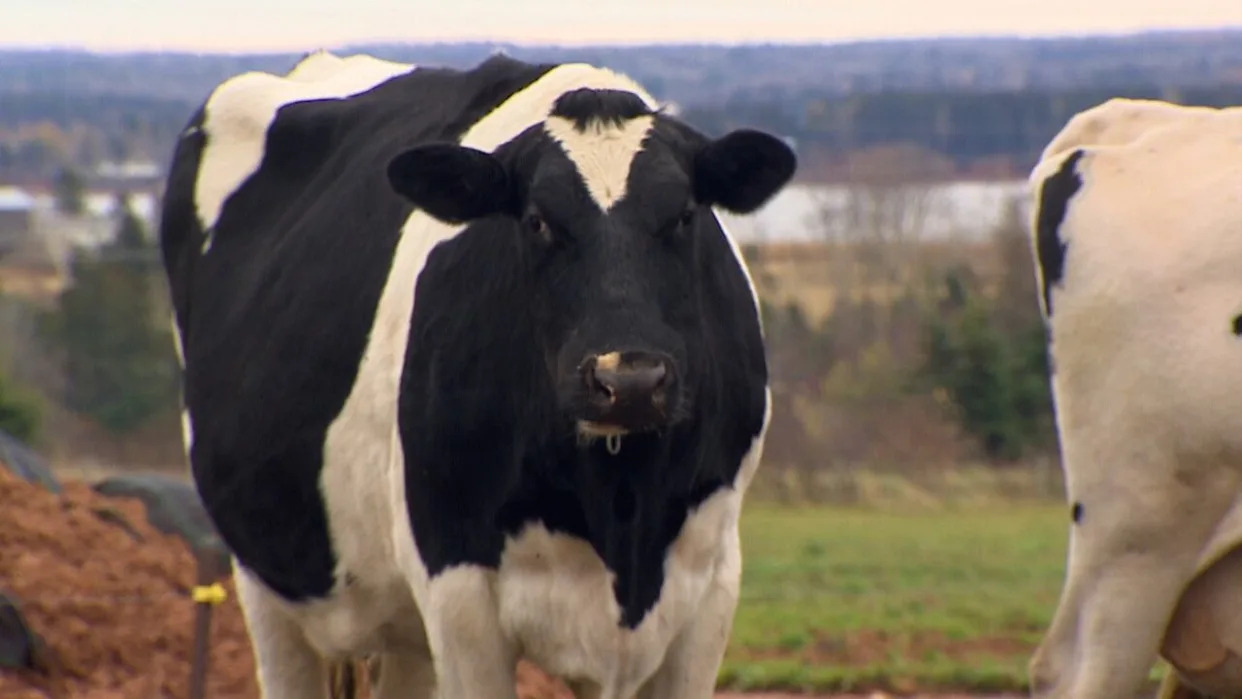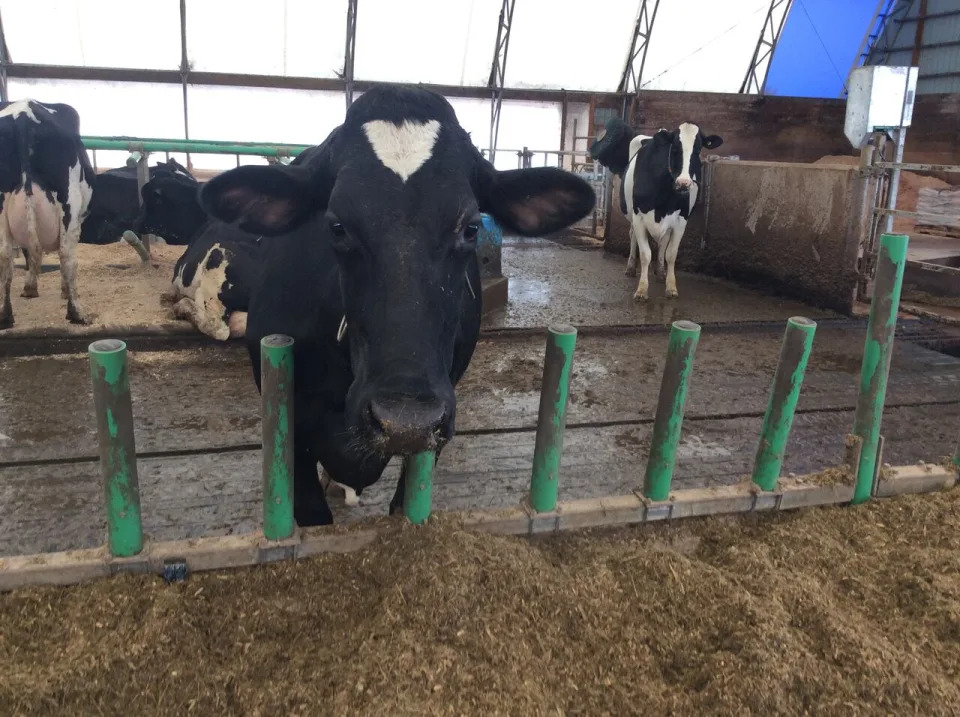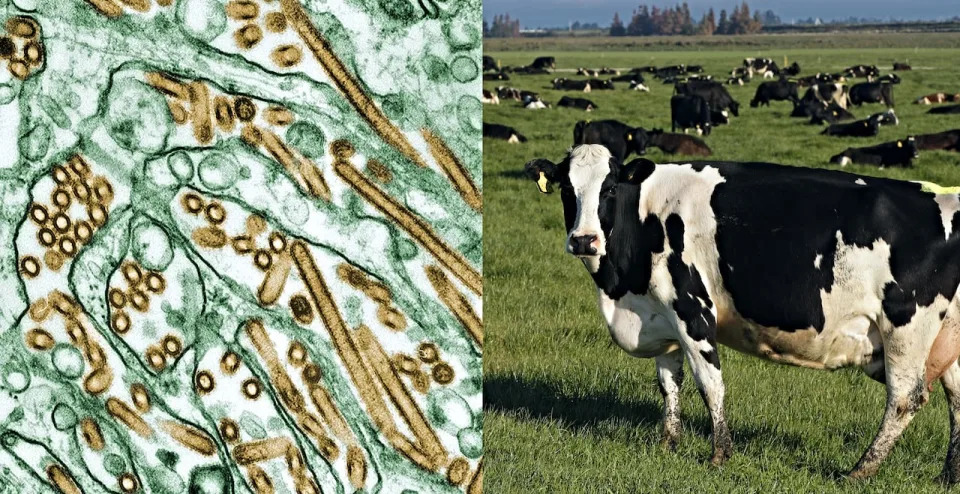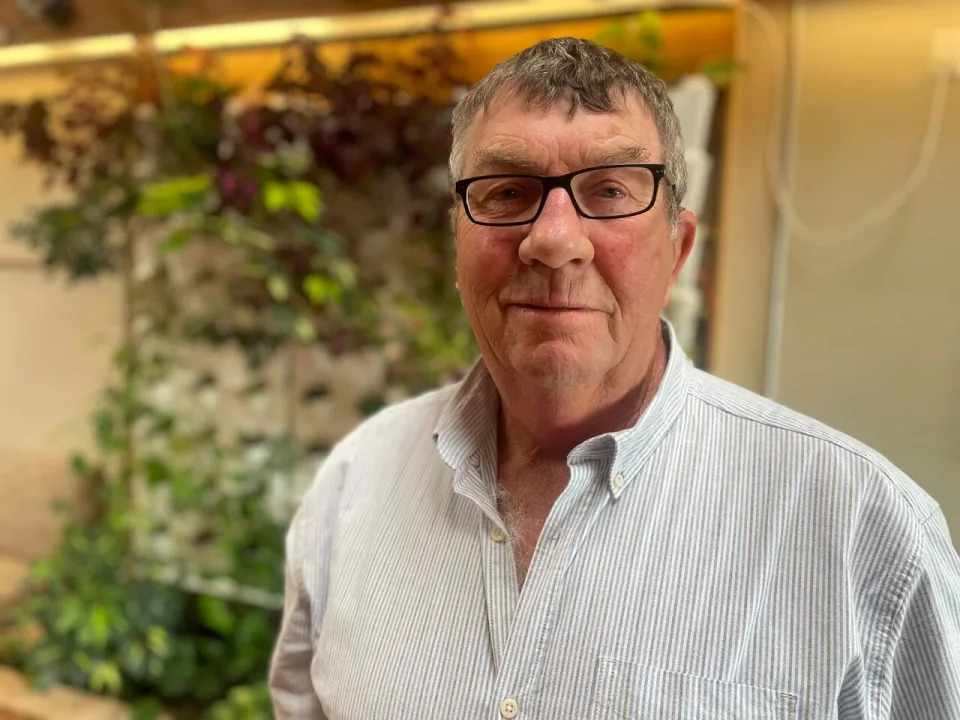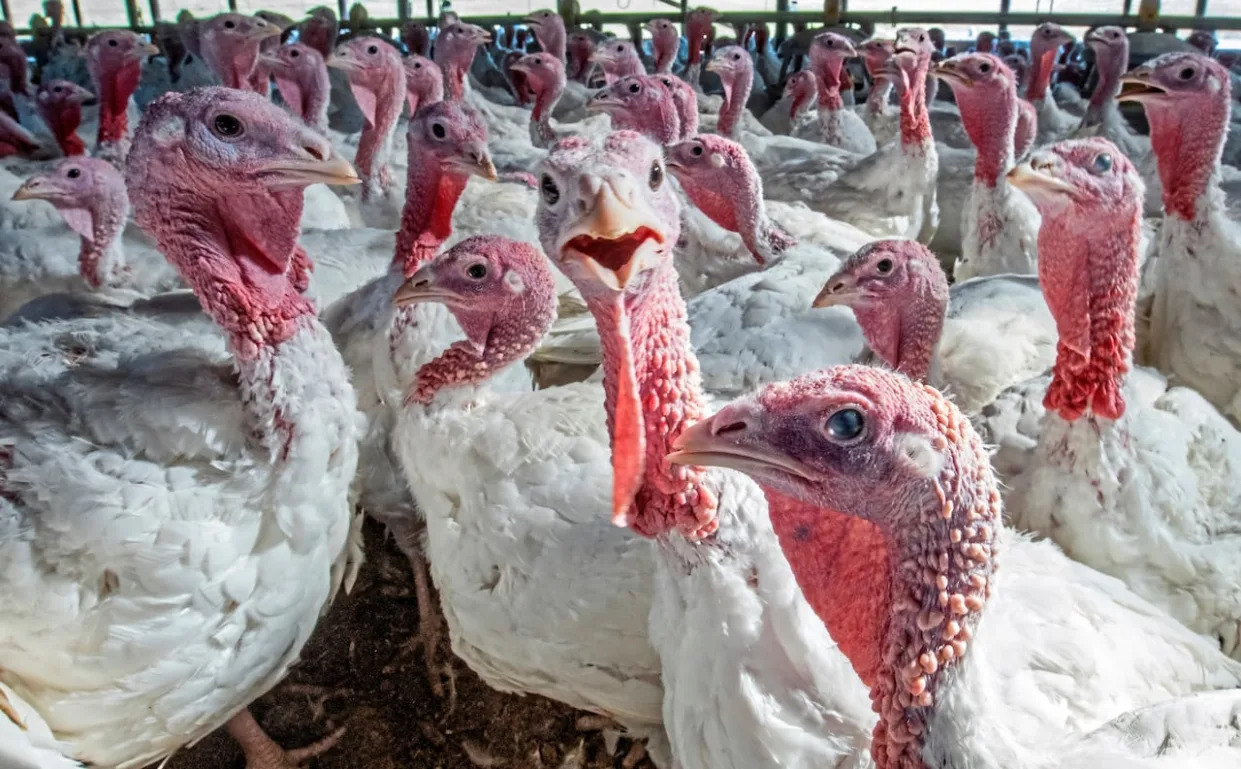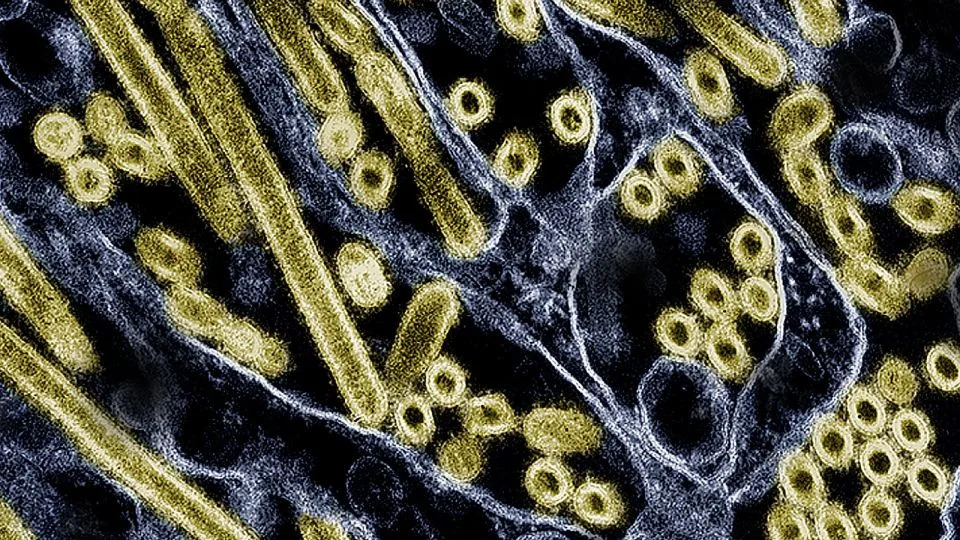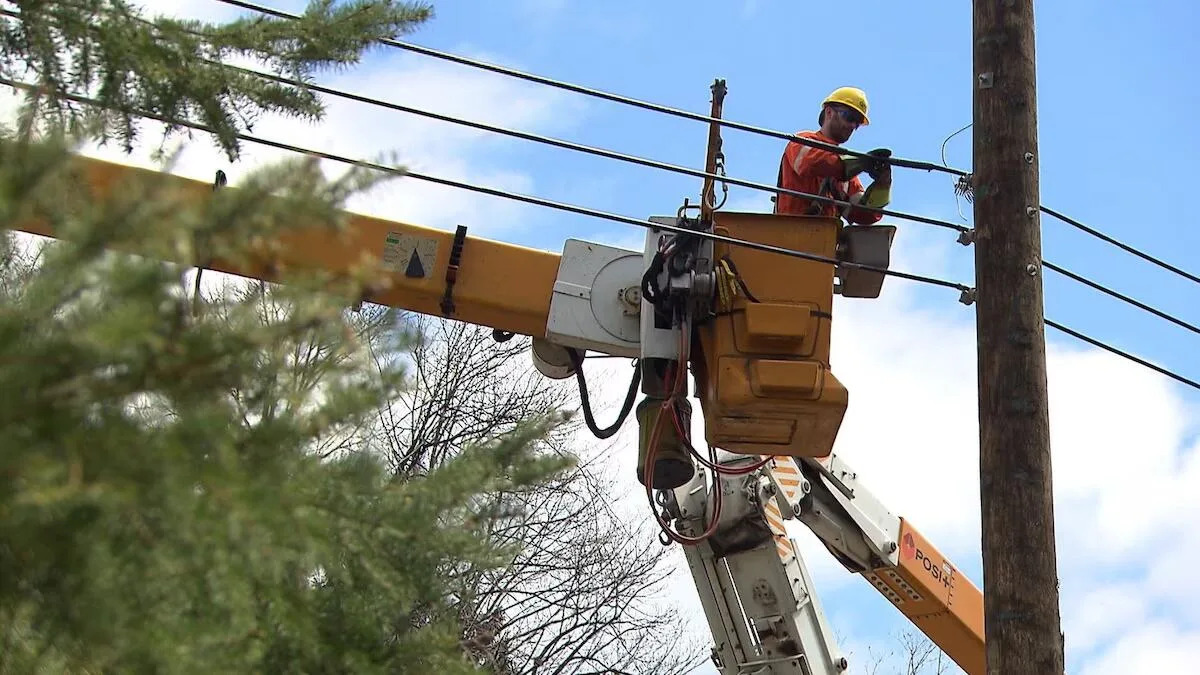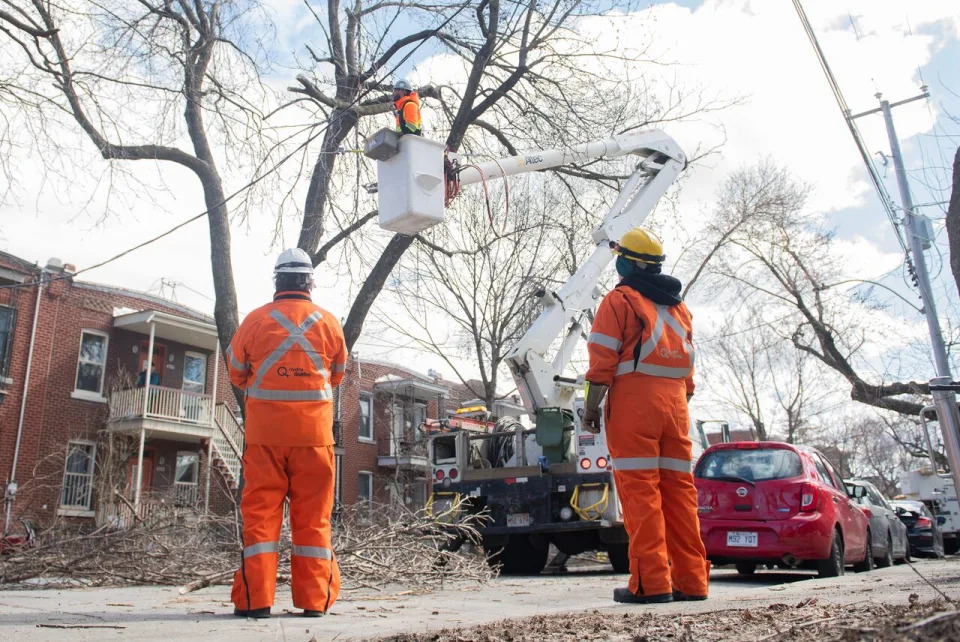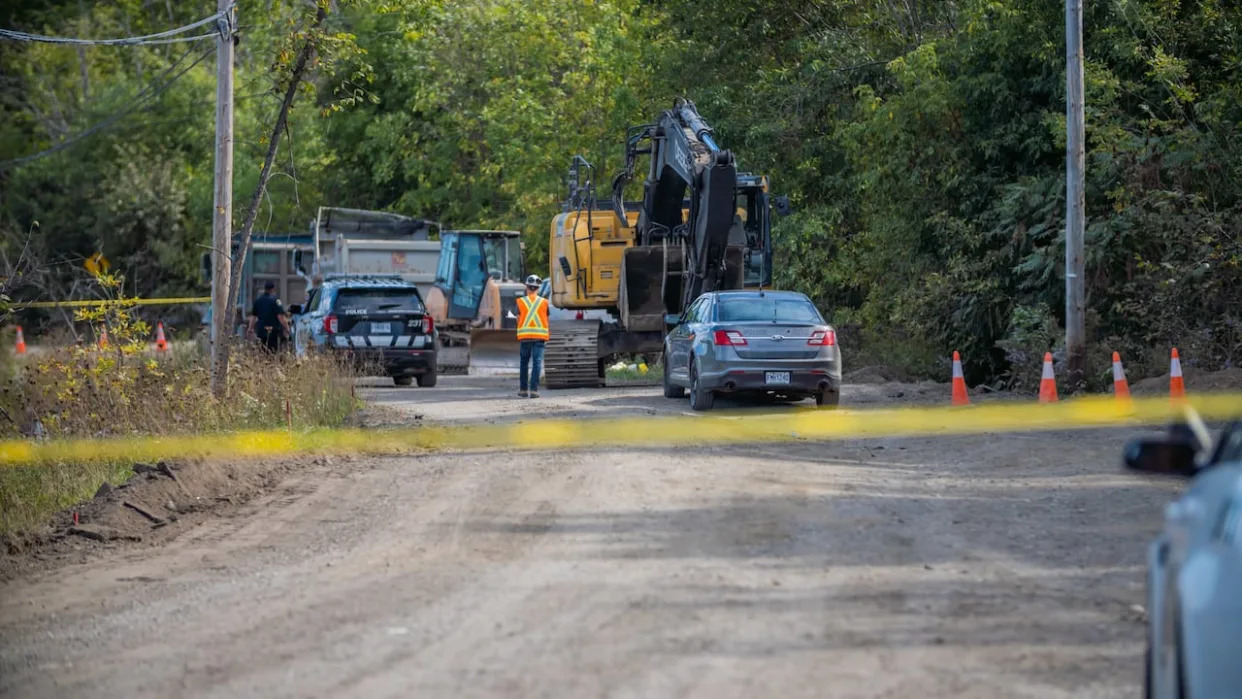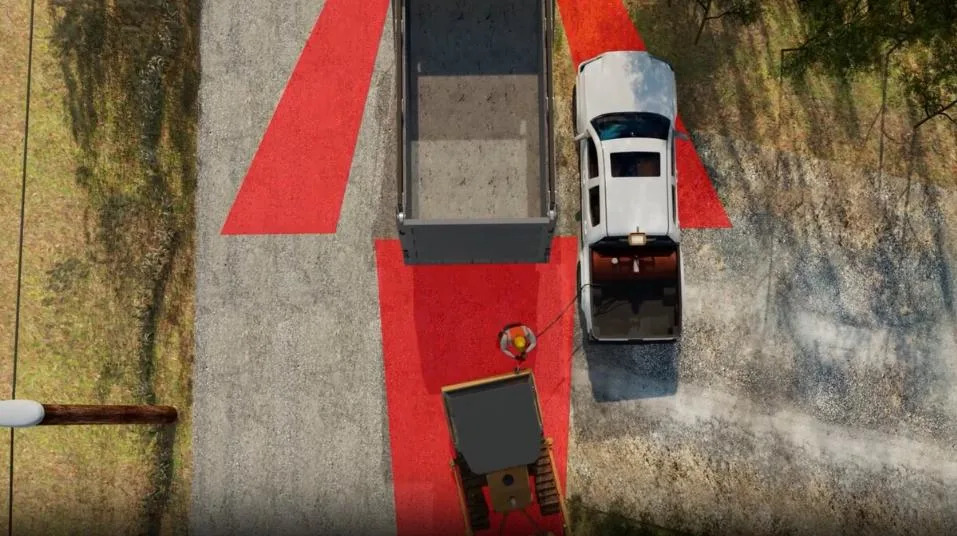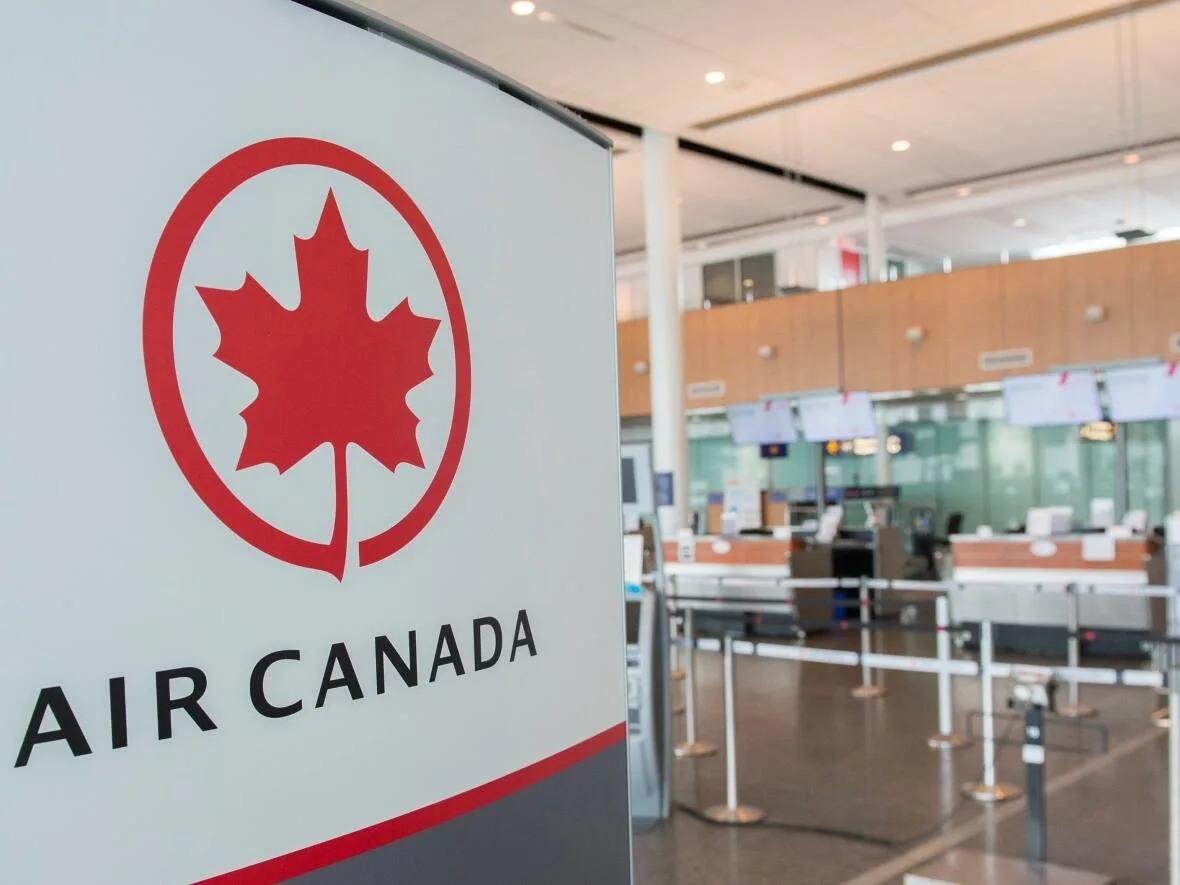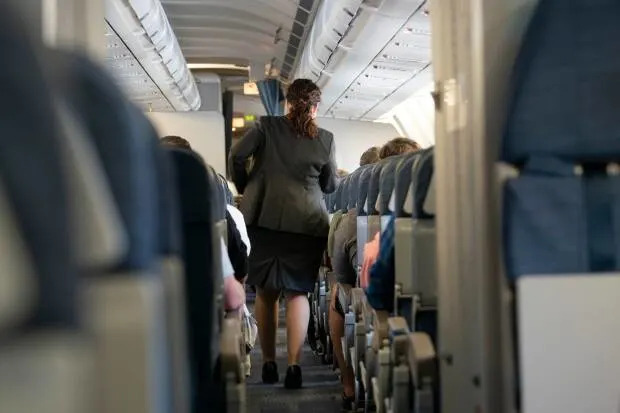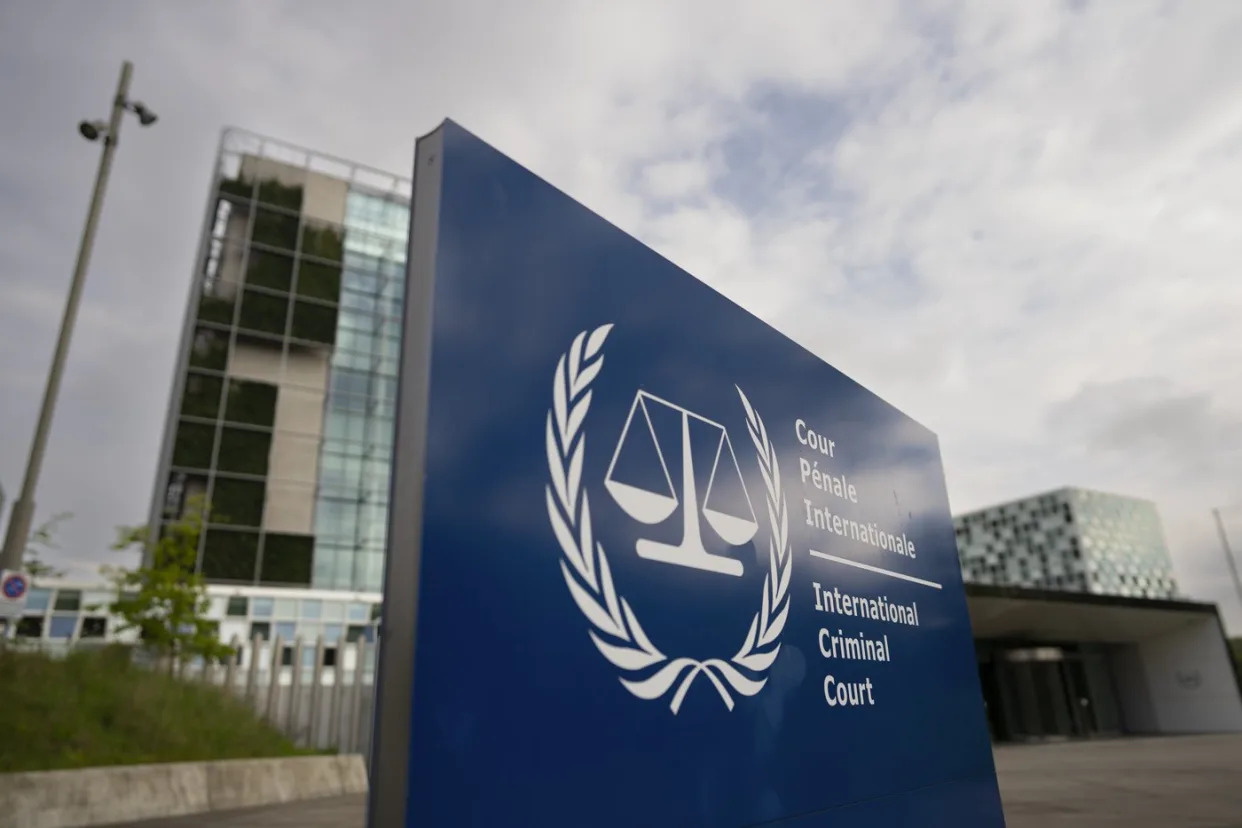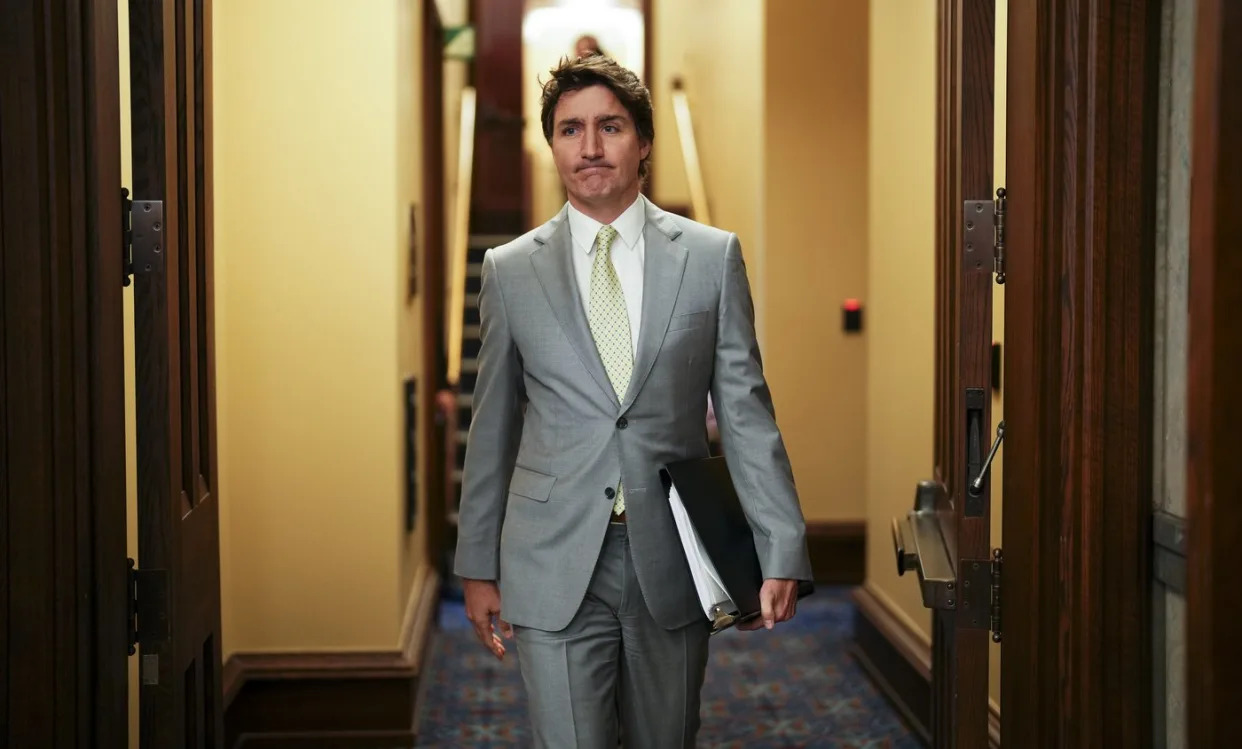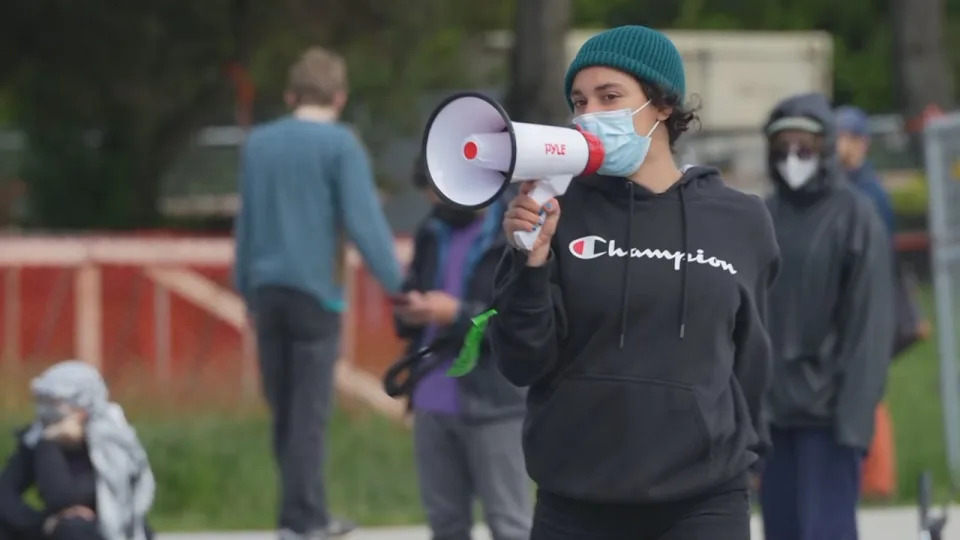CBC
Wed, May 29, 2024
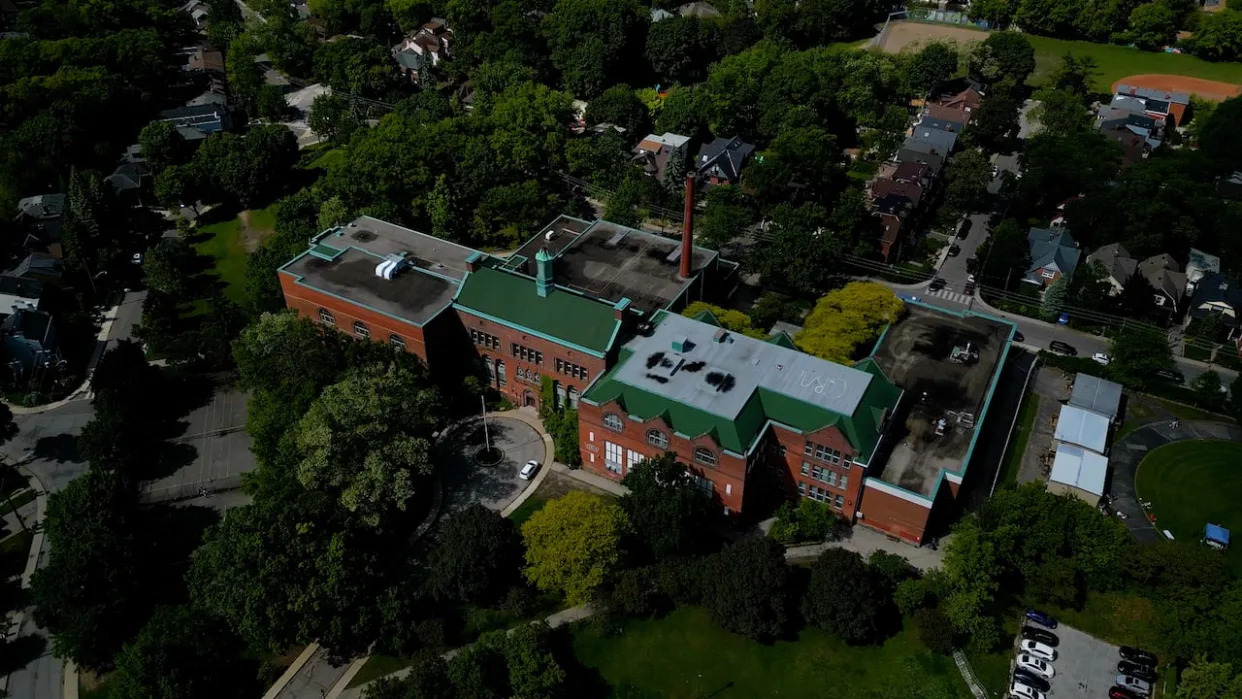
Humberside Collegiate Institute is one of many schools in Toronto and across the province in desperate need of repairs, according to advocates and the NDP. (Mehrdad Nazarahari/CBC - image credit)
Every time heavy rain hits Toronto's Humberside Collegiate Institute, parts of the high school shut down.
Three floors of stairs get cordoned off due to flooding. Water leaking from the roof makes its way to at least 20 spots throughout the school and collects in garbage bins. In the basement, a corridor lined with lockers is littered with deep puddles.
It's a scene Bhutila Karpoche, the NDP MPP of Parkdale—High Park described in a widely viewed series of social media posts to get the Progressive Conservative government's attention on the state of disrepair of schools in Toronto and across the province.
"Successive governments, both Liberal and Conservative, have not funded school repairs, and now, they are literally crumbling," she told reporters at Queen's Park on Wednesday.
"I do not want to hear any talking points. I want the minister to fix the schools."
Karpoche and advocacy group Fix Our Schools say the provincial school maintenance and repair backlog stood at a whopping $16.8 billion in 2022, and continues to grow each year.
Krista Wylie, co-founder of Fix Our Schools and a parent of a student at Humberside Collegiate Institute, said they've been trying to raise the alarm on the growing problem for a decade.
She said the group has heard from school staff, students and parents about classrooms where temperatures top 35 C during summer and plunge below 13 C in winter. Other concerns that aren't as easy to detect include air quality issues, growing mould and inadequate fire systems that contribute to unsafe learning and working conditions, she said.
"There are countless examples of disrepair across Ontario in our children's schools that are alarming," Wylie told CBC Radio's Metro Morning.
"And sadly, even though the example that we've seen this week is visually very alarming ... I wouldn't say it's the absolute worst."
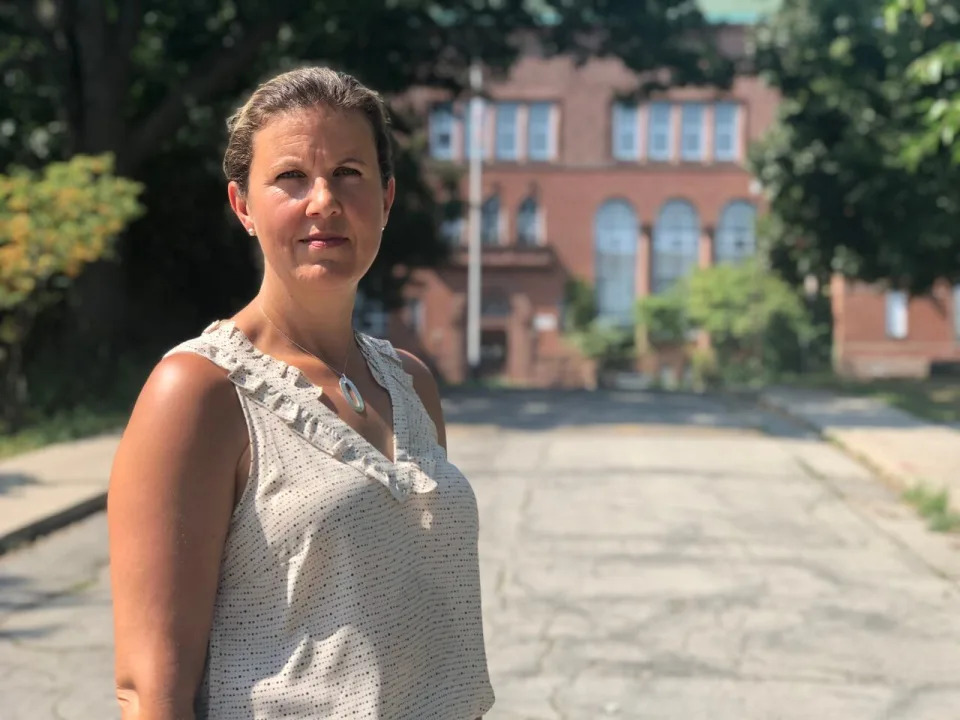
Krista Wylie, co-founder of Fix Our Schools, stands in front of her son's school Humberside Collegiate Institute on Aug. 26, 2021.
Krista Wylie, co-founder of Fix Our Schools, stands in front of her son's school, Humberside Collegiate Institute. The school is facing flooding issues that advocates say pose a healthy and safety risk. (Angelina King/ CBC)
The NDP and Fix Our Schools say the province needs to step up its funding, but the Minister of Education Stephen Lecce says the issue is for school boards to tackle.
Province says school board is responsible
In response to Karpoche's concerns, Lecce told MPPs at Queen's Park that he wants school boards, particularly the Toronto District School Board (TDSB), to "do their job."
"The TDSB is sitting on banked money in their maintenance fund of $315 million ... instead of spending it on that very roof," said Lecce.
He pointed toward the $1.4 billion that's earmarked for school repairs in the provincial budget for the current school year.
"Stand up to TDSB and demand better for your students," he said.
In an email to CBC Toronto, the TDSB said staff are investigating the roof leak at Humberside College Institute, and staff and students will be redirected to alternate stairs and exits.
"Of note, while the TDSB spends millions of dollars each year on roof replacements and repairs, we currently have an overall maintenance and repair backlog of more than $4 billion," the email reads.
The board says it spent about $370 million on repairs and related projects last year — which it says is a record — and it expects to spend even more this current year. It has about $380 million earmarked for similar projects this year but has yet to formally spend it, citing delays in receiving materials, approvals and the availability of qualified of contractors.
Over half of the TDSB's schools are over 60 years old, its website says. The board has identified approximately 23,500 different repairs needed in its school, with 70 per cent of those in critical or poor condition.
It estimates that if current provincial funding changes and no additional money is given, the backlog could hit $4.9 billion by 2027.
Grade 11 student Jack Stone at Humberside Collegiate Institute said he and many other students have gotten accustomed to the flooding and know it means they'll have to take a different route to class when it rains. But he hopes that isn't the case forever.
"I love this school, man. They need to fix it up," he said.

